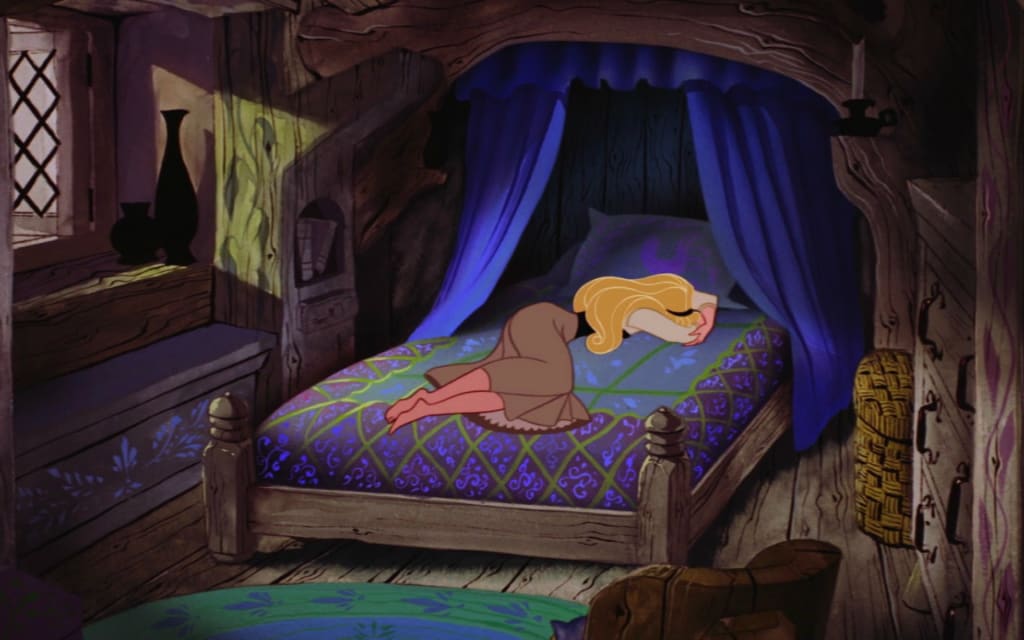Why Sadness in Disney Matters
Heartbreak and Happily Ever Afters

In the eight decades since their conception, the Disney princess has become synonymous with the dream of a happily ever after. Early on in each Disney princess feature, the protagonist will sing their "I want" song, establishing their unhappiness with their current situation and expressing their goals, and as Disney and the world around it has changed and progressed over the years, so have the dreams of its princesses. But no matter what they now wish for, it remains to be guaranteed that they will have their happily ever after. Of course, it's important to focus on these happy endings, on the idea that "No matter how your heart is grieving/If you keep on believing/The dream that you wish will come true," but the euphoria that comes from this happy ending is arguably only because we have followed our protagonist on their journey to get there, because we have seen them struggle and rise above everything the world threw at them. As important as the happily ever afters are, I wholeheartedly believe that it is the sad moments that make Disney films so special — the moments when all seems lost, and the "I want" song seems to be nothing but wishful thinking.
When Snow White is lost and alone in the woods. When Cinderella's evil stepsisters have ripped her mother's dress to shreds. When Aurora is walking away from her chance to be with the man from her dreams. When Ariel is watching the man she gave up everything for marry someone else. When Belle is locked away and called mad for believing in the man beast she loves. When Jasmine discovers that she has been lied to and sold like goods by the only men she trusted in her life. When Pocahontas would rather die than live in a world of injustice and hatred. When Mulan is abandoned in the mountains simply for daring to be the wrong gender. When Tiana is denied her dream of a restaurant because of her "background" (read: race). When Rapunzel returns to the tower thinking she is destined to be locked away and lied to forever. When Merida feels stifled by her family's expectations and inability to express herself. When Anna is dying, seemingly without anyone in the world to love her. When Moana is alone in the middle of the ocean, unable to fulfill the mission given to her by her grandmother.
These are the moments that make Disney films so special. Not because we should revel in the misfortune of our protagonists, but because, unfortunately, these are the moments with which we can empathise. We all have our own "I want" song, the dreams and wishes that our hearts have. And unfortunately, we all have our broken-hearted moments where it seems our dreams are destined to remain nothing more than dreams forever. The fact that Disney does not shy away from these moments is crucial in their beauty, and their main demographic being that of young children makes this element of their storytelling all the more significant.
The emotional roller coaster offered by Disney in each of their princess features makes the payoff all the sweeter. If the protagonist of each film simply had their happy ending handed to them on a plate then there would be no adventure, no satisfaction in their riding off into the sunset. Their pain humanises them in a way that allows the audience to connect to them on a fundamental level. In recent years, Disney has made moves to humanise their princesses in other ways, by giving them unruly hair, clumsy characteristics and awkward personas, but the emotional vulnerability evident in each princess since Snow White first graced our screens in 1937 offers an empathy between character and audience that is unlike anything else that could be achieved through such "relatable" traits. Of course, these quirks are important and humanise the princess trope, but there is nothing that levels humanity more than emotional exposure.
The strength of these characters is that they know it is okay not to be okay. They allow themselves to break down and be upset when it seems like the world is out to get them, but they also allow themselves to get up again, pull themselves together and actively seek their happy ending so they never have to feel that sadness again. There are arguments to be made on exactly how active or passive each princess is in their own story (ahem — Aurora), but the picture that Disney paints is that life isn't all sunshine and animal friends helping you do your chores. Even for Disney princesses, there are hardships, but it is how you deal with these hardships that allow you to find the happy ending.
What is also important is the message that, just because a princess may have reached their happy ending, they do not stop being active in their pursuit for more. This is an empowering message that tells of the importance to always strive for more, a message that is beautifully expressed in Tangled:
I've been looking out of a window for eighteen years, dreaming about what I might feel like when those lights rise in the sky. What if it's not everything I dreamed it would be?It will be.And what if it is? What do I do then?Well,that's the good part I guess. You get to go find a new dream.
Disney is often criticised as being nothing more than a fairytale, an unattainable level of fiction that holds no resemblance to reality. Of course, reality doesn't have Fairy Godmothers or Genies to help you on your way, but the reality of emotional development and expression depicted in the princess franchise offers an attachment to these characters that allows the audience to understand that maybe they're just at the sad part in their fairytale right now, and maybe their happily ever after is closer than they think.
About the Creator
Fern Wigfield
I make adventures happen at Merlin Entertainments | A coffee addict who owns too many books | “Without stories, we wouldn't be human beings at all”






Comments
There are no comments for this story
Be the first to respond and start the conversation.